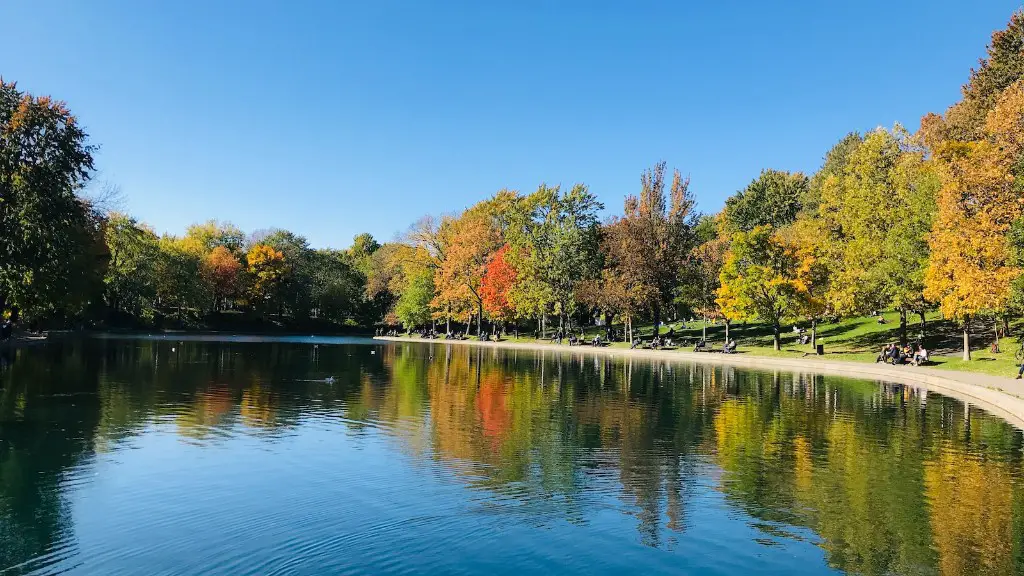At any given time, the answer to the question: “Are the beaches on Lake Michigan open?” could be either “yes” or “no.” That’s because the pandemic has caused various public health departments, cities, counties and states to enact different safety protocols. For example, in the state of Michigan, some beaches are open while others are closed. The goal of the state government is to protect citizens, visitors and businesses while also (where possible) allowing people to enjoy the many wonders and advantages of the Great Lakes. To ensure that everyone gets the most out of an open beach experience, certain restrictions and protocols must be followed.
The Michigan Department of Health and Human Services (MDHHS) has outlined specific requirements for open beaches which apply to everyone, whether on public or private land. All beachgoers should follow and adhere to the state-mandated standards. This includes social distancing, avoiding large crowds, and wearing masks when not swimming. Additionally, physical distancing of at least six feet must be observed when camping, beach sitting, picnicking, and other activities.
Lake Michigan beaches are open to swimming, wading, running, and kayaking activities. Boating and other motorized watercraft operation is also permitted with the exception of speeds which exceed the posted speed limits. In terms of amenities, food vendors, restrooms, and stores are closed. Visitors are strongly encouraged to bring all necessary supplies, such as food and water, to avoid contact with others.
Experts from the MDHHS state that the best way to ensure a safe and enjoyable beach experience on Lake Michigan is to practice social distancing and take sensible precautions to protect yourself and others. The MDHHS recommends attending a beach at quieter times to avoid large crowds, and if possible, reserving times slots or a private beach access to ensure enough space for everyone. Reducing contact with outsiders is key.
Additionally, visitors should take the necessary steps to adequately cover, remove and dispose of any trash, beach towels, and other litter when leaving the beach – this will help keep the beach cleean and help to reduce the spread of disease. After leaving, it is important to practice proper hand hygiene, and avoid touching your face, eyes, and mouth as much as possible.
The most important tip? Take your time to plan ahead. Contact your local beach or health authorities to get the most up-to-date information. Knowing the local regulations will help make your trip to the beach the safest and most enjoyable experience possible.
Are The Beaches Clean?
It can be difficult to know for certain whether a beach is clean or not. Thankfully, beaches on Lake Michigan are well-maintained and water testing is conducted on a regular basis. The Michigan Department of Environment, Great Lakes and Energy (EGLE) has set standards for clean beaches which are updated throughout the year. If a beach should register any contamination above the required threshold, it is quickly closed and posted with a warning sign.
Water samples for each beach are collected once a week and tested for E. coli, which is an indicator of bacterial fecal contamination. If the results are higher than the concentration level standard, the beach is immediately closed and will remain so until sufficient water samples come below the safety standard. EGLE also monitors additional criteria during swimming season, such as bacteria, nutrients, and cyanobacteria.
Lake Michigan is considered one of the cleanest and clearest of the Great Lakes. This means that beachgoers can feel confident that they will be able to enjoy a swim to their heart’s content. Visitors are encouraged to check the beach water quality online before visiting and to be aware of any new health advisories issued by local beach authorities.
What Safety Measures Need to Be Observed?
It is important to note that visitors to beaches on Lake Michigan must comply with safety regulations. All beachgoers must adhere to social distancing guidelines and wear a face mask when out of the water. People should also avoid forming large groups, and any kind of contact with the sand or water should be minimized. Additionally, it is recommended that visitors and adults present appropriate supervision for children at all times.
Due to the current circumstances, visitors to beaches on Lake Michigan should also be aware that they might be asked to leave should the beach become overcrowded or unsafe at any time. This is why it is so important to check local regulations and beach advisories before visiting.
Are There Any Restrictions?
In addition to the standard safety protocols, some beaches in Michigan have introduced more stringent restrictions. Some beaches have restricted access and some beach activities, such as volleyball, beach fires, and drinking alcohol. Additionally, overnight camping is usually prohibited. It is important to note however, that these restrictions and regulations can vary from beach to beach.
Beachgoers should also be mindful of local wildlife. There are a variety of animals which frequent the beaches of Lake Michigan, including turtles, fish, and birds. It is important for visitors to take special care to ensure that wildlife remains safe and undisturbed. Finally, visitors should always be aware of strong currents, sharp objects, undertows, and other potential hazards which can pose a danger to beachgoers, especially children.
What About Fishing?
Beaches on Lake Michigan are popular for recreational activities such as fishing. Current fishing regulations restrict access to certain fish species, sizes, and numbers of catches. Anglers should always check the local regulations before engaging in any fishing activities. These regulations can vary depending on the beach and the fish species.
The MDHHS also outlines specific requirements for fishing activities on beaches which apply to everyone, both experienced and inexperienced anglers alike. These regulations include social distancing, avoiding large crowds, and wearing masks when not fishing. It is also worth noting that deep sea fishing is prohibited in some areas and it is best to check with the local authorities before heading out. Finally, exercising good judgement when fishing should always be practiced, such as avoiding feeding wild animals or playing loud music.
What About Dogs?
Dogs are permitted at some beaches around Lake Michigan, and the rules vary depending on the beach. Owners should check with the local authorities before planning a beach day with their pet, as some beaches may have restrictions on when and where dogs are allowed.
When at the beach, owners should make sure that their pet is properly supervised at all times, and never allowed off the leash. Dogs should also be kept at a distance from other beachgoers and wildlife, and kept away from areas with picnic tables and other food amenities. Additionally, owners should be mindful of the terrain, as some beaches may have rocky shorelines or other hazards which may not be suitable for the pet.
It is also important to remember that pets can overheat in both hot and cold temperatures, so owners should make sure that their pet has plenty of shade and access to fresh water. Finally, owners should always clean up after their pet and dispose of it in a pet-friendly container.
Are There Any Health Risks?
Though visiting beaches on Lake Michigan can be a fun and rewarding experience, the Great Lakes contain numerous hazards and risks that visitors should be aware of. The most serious of these risks are water-borne diseases, some of which can be life-threatening. Visitors should always be sure to follow the guidelines and regulations provided by the local beach authority to reduce the risk of illness, injury, and other dangers.
Safety protocols have been put in place to help reduce the risk of contamination. Beachgoers should observe the safety guidelines such as social distancing, wearing masks, and avoiding contact with outsiders. Additionally, those who are immunocompromised or have underlying health conditions should avoid swimming or beach activities whenever possible, as the risk of exposure may be greater for them.
With careful planning and consideration, visitors can enjoy a safe, fun, and rewarding beach experience on Lake Michigan. It is important to remember that the answer to the question: “Are the beaches on Lake Michigan open?” can change from week to week and visitors must check local regulations to ensure a safe and pleasant visit.





